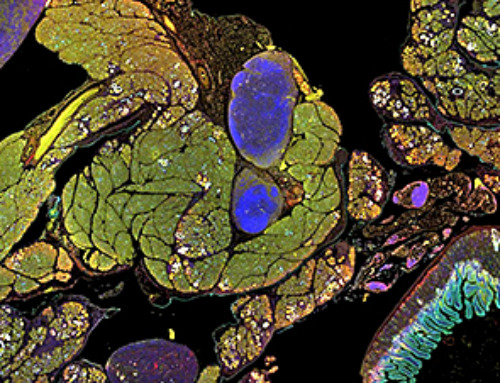Research published recently suggests that Pfizer’s erectile dysfunction drug Viagra can decrease the risk of developing Alzheimer’s disease by up to 69 percent.
The research, which was published in Nature, found that the medication has a direct effect on brain health and significantly reduces the toxic proteins that can cause dementia.
The study’s findings are so promising that the drug may someday be used to counter dementia. A new team of experts is preparing to conduct another study that builds on this data but tests the generic version of Viagra, sildenafil, in patients suffering from early Alzheimer’s.
“Sildenafil, which has been shown to significantly improve cognition and memory in preclinical models, presented as the best drug candidate. Sildenafil may have neuroprotective effects and reduce levels of toxic tau proteins,” said Dr. Feixiong Cheng, the lead researcher on the study, which was conducted by the Cleveland Clinic.
Coffee and Viagra offer new hope in fight against Alzheimer’s
Another recent study uncovered another unlikely weapon in the fight against dementia: coffee. Research suggests that coffee consumption may significantly decrease your chances of developing the disease.
The study sheds light on the mysterious disease, for which there is no cure as of now. While coffee does not mitigate or fight Alzheimer’s like some medications do, the study found that people with no memory loss who also drank larger than average amounts of coffee were at less of a risk of developing mild cognitive impairment, which is considered a pre-stage of Alzheimer’s disease.
“Worldwide, a high proportion of adults drink coffee every day, making it one of the most popular beverages consumed,” Gardener added.
The popularity and ubiquitousness of coffee could make it a viable method of deferring the onset of Alzheimer’s disease. But she also stressed that further studies are necessary. Gardener and her team are not yet sure what ingredient in coffee itself contributes to the delaying of Alzheimer’s.
“This is, obviously, preliminary data and it needs a lot more research before being recommended, but it’s really positive, and hopefully in the future, it can be incorporated as a modifiable lifestyle factor that can delay Alzheimer’s disease onset,” Gardener said.
News
Global Nanomaterial Regulation: A Country-by-Country Comparison
Nanomaterials are materials with at least one dimension smaller than 100 nanometres (about 100,000 times thinner than a human hair). Because of their tiny size, they have unique properties that can be useful in [...]
Pandemic Potential: Scientists Discover 3 Hotspots of Deadly Emerging Disease in the US
Virginia Tech researchers discovered six new rodent carriers of hantavirus and identified U.S. hotspots, highlighting the virus’s adaptability and the impact of climate and ecology on its spread. Hantavirus recently drew public attention following reports [...]
Studies detail high rates of long COVID among healthcare, dental workers
Researchers have estimated approximately 8% of Americas have ever experienced long COVID, or lasting symptoms, following an acute COVID-19 infection. Now two recent international studies suggest that the percentage is much higher among healthcare workers [...]
Melting Arctic Ice May Unleash Ancient Deadly Diseases, Scientists Warn
Melting Arctic ice increases human and animal interactions, raising the risk of infectious disease spread. Researchers urge early intervention and surveillance. Climate change is opening new pathways for the spread of infectious diseases such [...]
Scientists May Have Found a Secret Weapon To Stop Pancreatic Cancer Before It Starts
Researchers at Cold Spring Harbor Laboratory have found that blocking the FGFR2 and EGFR genes can stop early-stage pancreatic cancer from progressing, offering a promising path toward prevention. Pancreatic cancer is expected to become [...]
Breakthrough Drug Restores Vision: Researchers Successfully Reverse Retinal Damage
Blocking the PROX1 protein allowed KAIST researchers to regenerate damaged retinas and restore vision in mice. Vision is one of the most important human senses, yet more than 300 million people around the world are at [...]
Differentiating cancerous and healthy cells through motion analysis
Researchers from Tokyo Metropolitan University have found that the motion of unlabeled cells can be used to tell whether they are cancerous or healthy. They observed malignant fibrosarcoma [...]
This Tiny Cellular Gate Could Be the Key to Curing Cancer – And Regrowing Hair
After more than five decades of mystery, scientists have finally unveiled the detailed structure and function of a long-theorized molecular machine in our mitochondria — the mitochondrial pyruvate carrier. This microscopic gatekeeper controls how [...]
Unlocking Vision’s Secrets: Researchers Reveal 3D Structure of Key Eye Protein
Researchers have uncovered the 3D structure of RBP3, a key protein in vision, revealing how it transports retinoids and fatty acids and how its dysfunction may lead to retinal diseases. Proteins play a critical [...]
5 Key Facts About Nanoplastics and How They Affect the Human Body
Nanoplastics are typically defined as plastic particles smaller than 1000 nanometers. These particles are increasingly being detected in human tissues: they can bypass biological barriers, accumulate in organs, and may influence health in ways [...]
Measles Is Back: Doctors Warn of Dangerous Surge Across the U.S.
Parents are encouraged to contact their pediatrician if their child has been exposed to measles or is showing symptoms. Pediatric infectious disease experts are emphasizing the critical importance of measles vaccination, as the highly [...]
AI at the Speed of Light: How Silicon Photonics Are Reinventing Hardware
A cutting-edge AI acceleration platform powered by light rather than electricity could revolutionize how AI is trained and deployed. Using photonic integrated circuits made from advanced III-V semiconductors, researchers have developed a system that vastly [...]
A Grain of Brain, 523 Million Synapses, Most Complicated Neuroscience Experiment Ever Attempted
A team of over 150 scientists has achieved what once seemed impossible: a complete wiring and activity map of a tiny section of a mammalian brain. This feat, part of the MICrONS Project, rivals [...]
The Secret “Radar” Bacteria Use To Outsmart Their Enemies
A chemical radar allows bacteria to sense and eliminate predators. Investigating how microorganisms communicate deepens our understanding of the complex ecological interactions that shape our environment is an area of key focus for the [...]
Psychologists explore ethical issues associated with human-AI relationships
It's becoming increasingly commonplace for people to develop intimate, long-term relationships with artificial intelligence (AI) technologies. At their extreme, people have "married" their AI companions in non-legally binding ceremonies, and at least two people [...]
When You Lose Weight, Where Does It Actually Go?
Most health professionals lack a clear understanding of how body fat is lost, often subscribing to misconceptions like fat converting to energy or muscle. The truth is, fat is actually broken down into carbon [...]





















